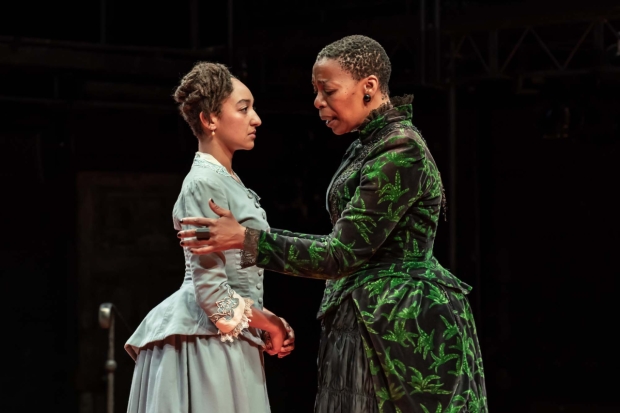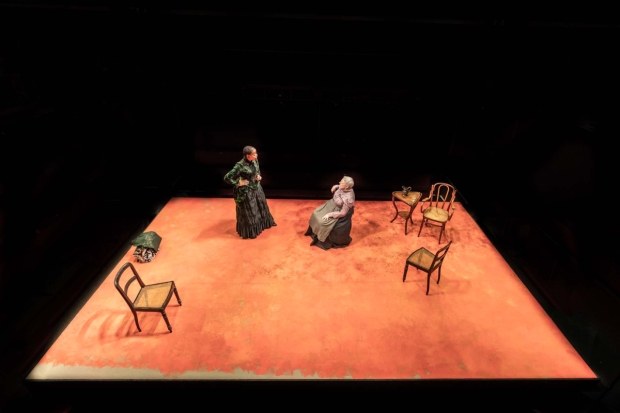A Doll's House, Part 2 at the Donmar Warehouse – review
Lucas Hnath’s hit play arrives in London

© Marc Brenner
It opens 15 years after Ibsen left off, with Nora Helmer knocking on the door of the marital home that she once so memorably slammed shut. She's now a best-selling authoress, whose book based on her own unhappy marriage has become a bible for women who think that wedlock isn't necessarily a path to happiness.
But a vicious judge has discovered her identity, and in doing so has uncovered the fact that she has never been divorced. She needs her ex, Torvald, to divorce her because otherwise she may be exposed as a fraud, and subject to prosecution for living as a single woman and behaving in ways that a married woman is not permitted.
That's the first problem with the play. I may be being extraordinarily dense but for me the plot doesn't make sense; divorce can't be retrospective, so Nora would still be in peril, even if Torvald files the papers. His own vulnerability, when it is revealed, is more convincing, but it is nevertheless quite hard to care about 90 minutes of debate on the nature of freedom and love, when its starting point seems so blurry.
I decided to give up and enjoy what this Donmar production, directed with characteristic precision by James Macdonald, does offer – which is four meaty roles, for four good actors, who seize them with skill and relish.
Rae Smith's set is initially covered by a louring house, with smoke spiralling from its bleak chimney. It squats like a toad in the centre of the space, and when it rises, it reveals what is effectively a boxing ring, surrounded by the audience on four sides, the floor covered in red sawdust. There are four chairs and a table, nothing else.
As Nora, Noma Dumezweni tries to own the space, arranging the furniture to make the terrain her own. Dumezweni, resplendent in a shimmering black and green bustle, conveys pleasure in her own success since leaving this room; confronted by June Watson's nanny Anne Marie, who plants herself firm centre, she stresses her belief in her course. Yet that certainty is undermined as the conversations progress, and each character stakes out their options for life moving forward.
In many ways, Anne Marie is the best written and most interesting character; the servant who has given up her own child to bring up Nora's abandoned children. Watson is towering, simultaneously worried and battling, determined to repel any threat to the place she has carved for herself. As Torvald, Brían F O'Bryne brilliantly captures the childish self-centredness that drove Nora wild; he folds his arms, sulking, when they first meet. His agony at being portrayed as the villain of the piece and his defence of his actions brings sympathy to his side.

© Marc Brenner
The final character is Emmy, the grown-up daughter, played by Patricia Allison with a winning shimmy of self-possession and an absolute certainty that, for her, marriage will not be the disaster it was for her mother. When she announces "I want to be somebody's something", the look that passes over Dumezweni's face is the one that every feminist mother has felt confronted with her post-feminist daughter's ideas.
There's a lot of interest in these arguments as they circle round, but they are too dry and intellectualised to land dramatically. I kept wondering what this play would have been like if it had been written by a woman; I think Nora's achievements would have been emphasised a lot more. As it is, everything seems equivocal. It's an interesting evening, but not a satisfying one.












